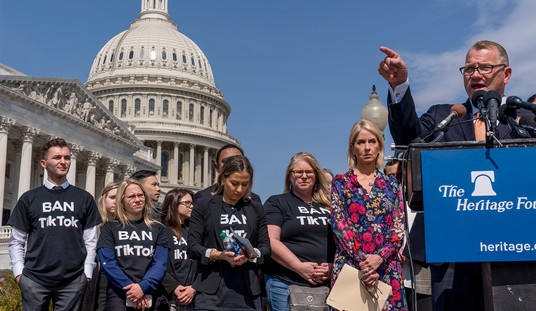On Friday, I responded briefly to Rep. Jan Schakowsky’s (D-Ill.) comments that taxpayers don’t deserve to keep all their money. I wrote:
At first glance, it’s tempting to reduce the argument for little to no taxation to this: “He who possesses it (money, land, whatever) ought to keep it regardless of whether he deserves it simply because it’s his.” Nobody has the right to forcibly take what’s not his — it’s called stealing. But, as appealing as it is to equate government taxing and spending with stealing, in a constitutional republic like ours, it’s simply not.
The federal government has property rights, too. For, in the end, a property right is simply “the exclusive authority to determine how a resource is used.” Sad to say it, but the government does have that authority over the resource of our tax dollars. But, crucially, it derives that authority from our consent, the consent we express in the U.S. Constitution, which does give the federal government the power to tax (although it’s worth noting that it originally wasn’t constitutional to tax income — it took the 16th Amendment for that). When the federal government taxes us, then, it doesn’t really take our money. We freely — if indirectly — choose to appropriate our money to the federal government by voting in the Congress that establishes the tax rates in the first place. We consent to giving the federal government authority over a particular portion of our private resources, making those private resources public. In effect, we cede our right to that property to the federal government. The federal government, then, has a right to our tax dollars because we give it that right.
The question, then, is not: How much money do our representatives in government believe we deserve to keep? Rather, it is: How much do we think we deserve to keep, to command as we wish? How much do we think the government deserves to command, to use for those few things that only the collective can provide (e.g. defense!)? In other words, it is ever and always a question about the size, scope and purpose of government. And our opinion on that will necessarily inform whom we elect.
Insofar as all that goes, it’s correct. But, after consulting with a friend and constitutional scholar (the Heritage Foundation’s David Azerrad) and then, after reading J.E. Dyer’s excellent post on this subject yesterday, I’d like to amend my earlier comments a bit. As Dyer says, it’s really not a question of deserving. She writes, perfectly:
The question of what we “deserve” boils down to which came first, the individual human with rights, or the state. America was founded on the principle that the individual human with rights comes first. Any idea that violates that principle is counter to our founding idea. It is not possible to reconcile with our founding principle the idea of collective schemes in which we make some modification to “what we deserve.” We either deserve to keep all our own earnings – money – wealth – goods – or we do not have unalienable rights.
Now, what we decide to do with our own money will inevitably involve government functions of some kind. People have to have a government in some form. A certain minimum set of public services is essential to corporate human life. The American founding idea is that we the people decide what government will do, and we decide how much money government will have to do it with. Then we contribute out of what is inalienably ours.
In the American idea, the state doesn’t operate on the basis of “what we deserve.” It operates on the basis of law: definitions adopted by due process, and objective circumstances. “What we deserve” is outside the scope of the state’s competence to decide. If we enter relationships in which someone else decides that for us, they are voluntary; e.g., employer paying or promoting employee, fan-base keeping pro sports or the music industry profitable.
The percentage-based income tax and the practice of payroll withholding have combined for a century now to obscure in our minds the simplicity of our founding principles. But the founding principles were very clear. Modern interlocutors can seek to change the argument, toss red herrings around, and get us in full 6-year-old mode talking about “deserving” and “not deserving” according to whether we are Leona Helmsley or Mother Teresa, but the bottom line is that a man whose title to his money is considered – as a first principle – subject to the whim of his neighbor, is a slave.
In other words, the original question as posed by Napa Tea Party Teen Tyler Hensley — as penetrating and insightful as it was, hinting at a fissure in first principles between conservatives and progressives — employed a formulation (“deserve to keep”) that suggested the federal government does us a favor by allowing us to keep some of our income. But as Dyer demonstrates and Azerrad reiterated, we deserve to keep every last cent of income justly earned. The emphasis should not be on what we keep but on what we part with. How much should we be taxed?
That question is, as I hinted, a question about the size, scope and purpose of government. But as Azerrad corrected me, purpose is primary. “The size and scope follow from that,” he explained. “Government has legitimate ends to pursue and we can debate how much it will cost for it to do so. That is not the same thing as funding things that the government ought not to be doing in the first place.” Dyer says as much when she writes, “The American founding idea is that we the people decide what government will do, and we decide how much money government will have to do it with.”
The debate rages as to what we the people think the government should do — and, hence, the debate about how large the government should be and how much of our money it requires rages, as well. But, fortunately, we can look to the Constitution to know what it is we have already decided the government is authorized to do. A return to first principles — to the idea of a government limited by the Constitution — is badly in order. That, after all, is what the Tea Party has always meant to say — and it took Tyler Hensley to remind me of that.








Join the conversation as a VIP Member